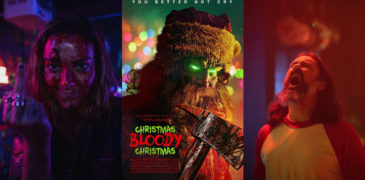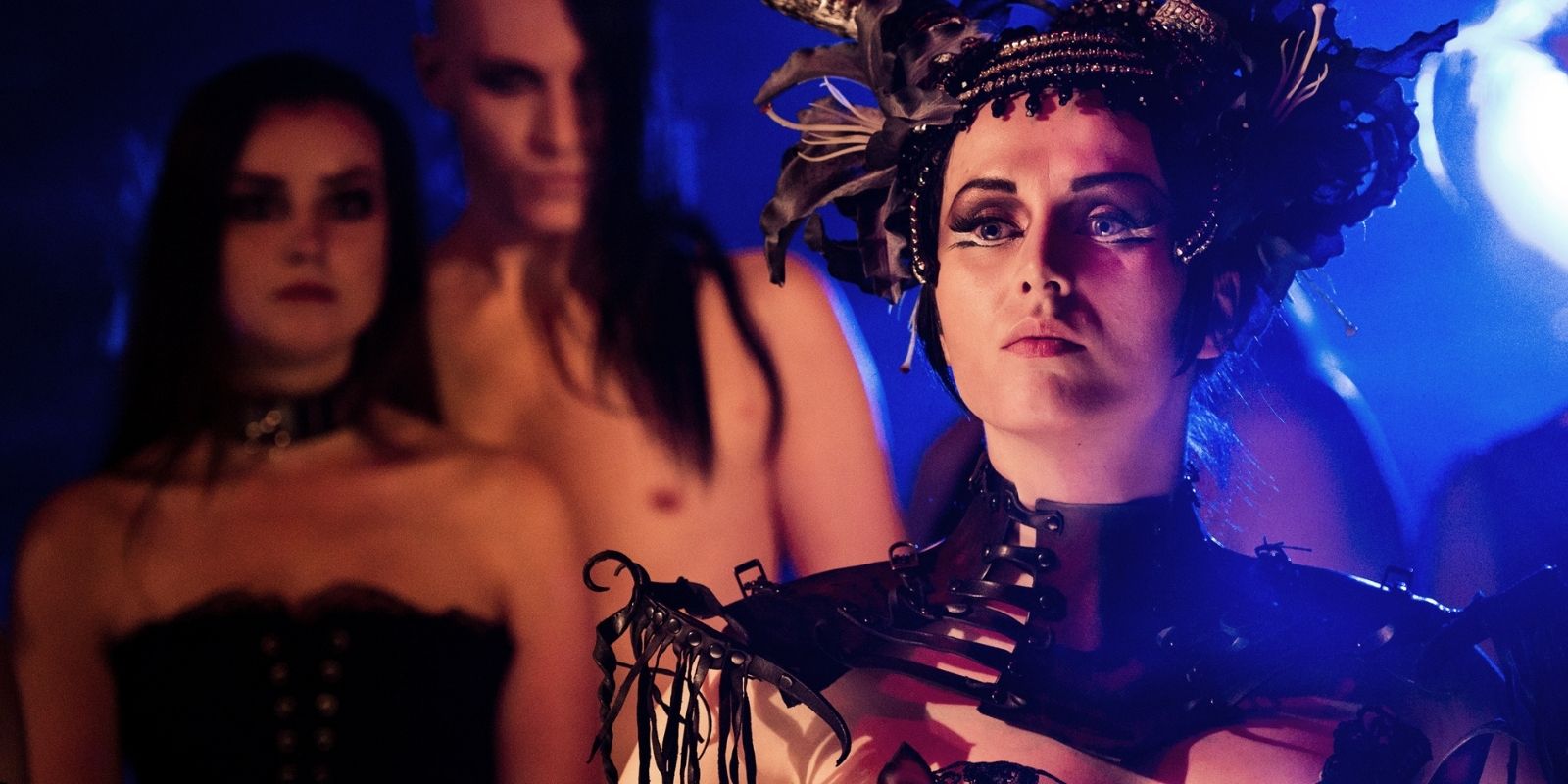
Johanna is just twenty years old but struggling with her boring and aimless existence. Disturbing visions start the day she gets fired from her job. Soon Johanna is carried off into a different world beneath the city where people live in a parallel universe full of darkness and magic rituals. The denizens of this world are inspired and guided by a mysterious woman, The Mistress. Drawn into her cult through an extravagant initiation ceremony, Johanna encounters fascinating characters: People like Simon, the collector, with whom she embarks on an obsessive affair. As Johanna plunges deeper into the occult her old world slowly collapses…
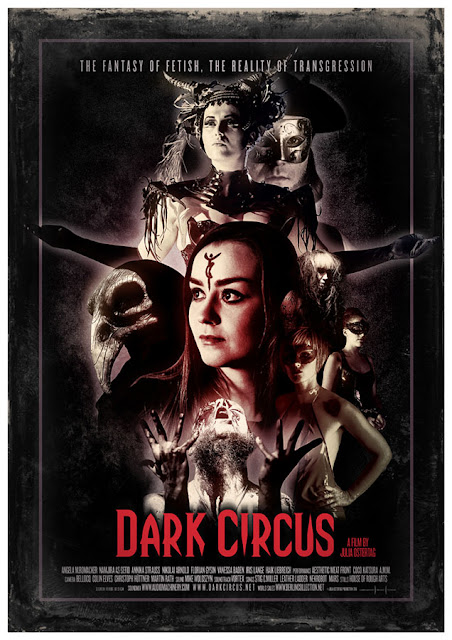
There are some productions that exist as a celebration of a certain sub-culture, a way to showcase the attributes that those involved find worthy of further exploration. However, the inherent fault in such an approach is to realize, after the fact, that the subculture you embrace is seen as unremarkable from the outside. Julia Ostertag’s Dark Circus certainly falls into the latter pitfall, yet it is not without it redeeming qualities.
Notably, and showcasing the exquisite fashion of the scene, the costume design in Dark Circus is stylish and sensual. Fetish gear is mixed with costumes to capture that sense of the occult and Johanna’s own sexual and spiritual awakening. In addition, the set designs are wonderfully macabre either filled with art or bodies writing to capture a constant sense of a living/expansive environment. If anything can be said in favor of the production, it exists as a consistent vision steeped in its own lore through design alone.
The other productions’ admirable attribute comes from its unapologetic embrace of sexuality, both in its display of nudity and BDSM culture. There is a lot of tits, and there is a slot of sub/dom play in the film, but it is all represented in a dizzying abundance that keeps the tone of the film in the fantastical – ideal when framed as the re-awaking of Johanna.
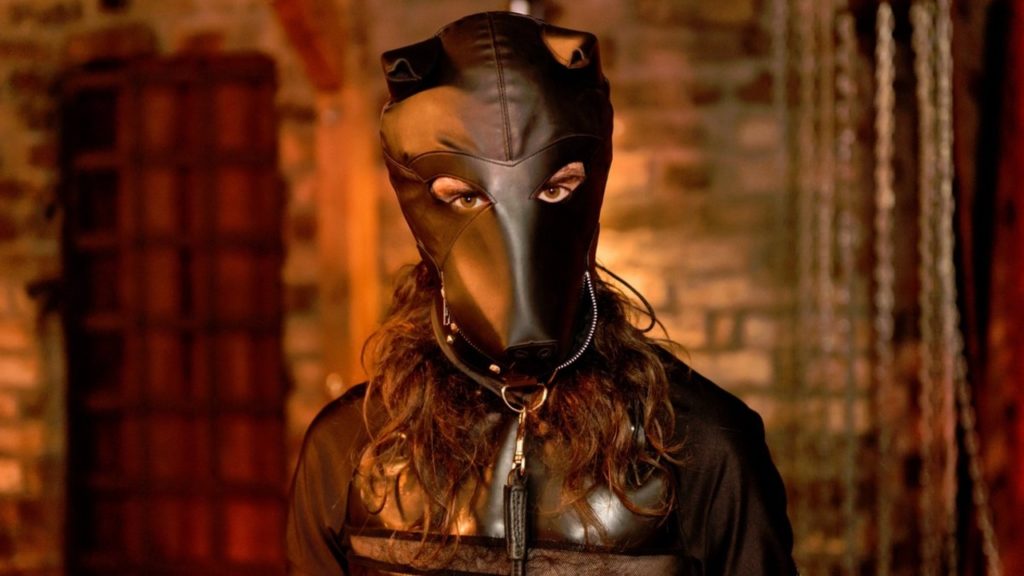
Story wise, the film presents itself as a sexual rebirth of Joanna, and an embracing of the occult. Unfortunately, this is where the film will begin to unravel for most, as the transformation is slow paced and can’t seem to shake the vibe of still trying to present the subculture as the pinnacle of ‘cool’. A story as old as time told to much greater effect, the sexual awaking of Johanna is much more tepid than Dark Circus makes it out to be – attempt at shock or sensationalism becoming lost in the noise of the sets and characters. Sadly, there is not much reason to feel invested in Johanna, and the project can’t shake the vibe of trying to show off a certain cub-culture over crafting an engaging narrative. Tragically, this also buries any of the performances and makes the weak ones even more pronounced, but this is always a problem when you hire friends over actual actors.
Approaching a film so heavily steeped in a certain sub-culture, it feels dishonest to critique it without mentioning my own personal bias with said group. Growing up as a kid and being overtly obsessed with the German goth scene, particularly through music, it is no longer a sub-culture that I really equate with high artistic standards, yes art and style is subjective but to me it was something I ‘grew out’ of (personal reflection not condemnation). Furthermore, any variant of BDSM has never been a personal interest of mine. As such, while I could admire the eroticism in these scenes as a man who likes nudity, the actual sex play to me was awkward at best and downright silly at its worse (pup-play is something I can’t take seriously).
To say my own personal tastes were not a direct factor on whether I enjoyed the film or not is very present in a production of this ilk. Conversely, I can see people who are into BDSM and goth aesthetic to find a lot here to adore and get lost in. This film was objectively, not for me, yet, if anything covered here tickles your fancy I implore you to check it out. Ultimately, Julia Ostertag has crafted a unique vision rooted in her love of German counter-culture.

We Watched Dark Circus Courtesy of Midori Impuls

More Film Reviews
Masking Threshold (2021) Film Review – Madness up Close
Dealing with an abnormal form of tinnitus, a young IT worker begins a series of experiments to figure out the abnormal nature of his condition. Bringing various objects into his…
Nosferatu: The Real Story (2024) Film Review – Looking Back and Forward
In the great history of vampire movies, there are a lot of incredible films – but only one can claim to be the first vampire film, and perhaps the most…
Prisoners of the Ghostland (2021) Film Review – East Meets West for a Radioactive Psycho-Western
Prisoners of the Ghostland wastes no time engaging viewers with its opening scene depicting the curious contrast of the stark white interior of a bank with its many patrons donned…
Fishmonger (2023) Film Review – A Tale As Old As Time [Fantastic Fest]
Fishmonger is a 2023 Irish supernatural horror comedy, written and directed by Neil Ferron with additional writing from Alexandra Dennis-Renner. Not his first time behind the camera, Neil is known…
Jungle Trap (2016) Film Review – Do You Know Where You Are?
Returning to the site of a hotel where the aboriginal people slaughtered a team of archaeologists, a new team set forth to find out the truth of what happened to…
Christmas Bloody Christmas (2022) Film Review – An Over the Top Slay Ride of Holiday Fear
Christmas Bloody Christmas is an over-the-top slay ride of holiday cheer fear! Writer and director Joe Begos (VFW, Bliss) always delivers a combination of good storytelling and delirious, gory violence…
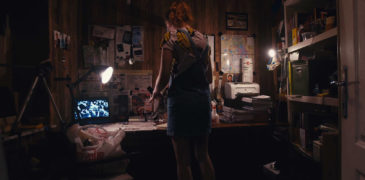
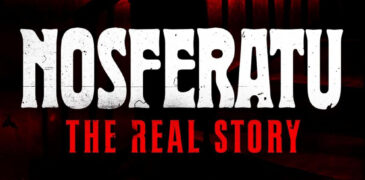
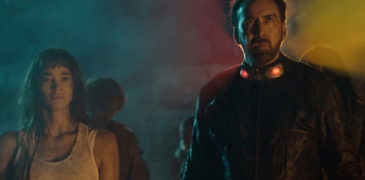
![Fishmonger (2023) Film Review – A Tale As Old As Time [Fantastic Fest]](https://www.grimoireofhorror.com/wp-content/uploads/2023/09/Fishmonger-365x180.jpg)

